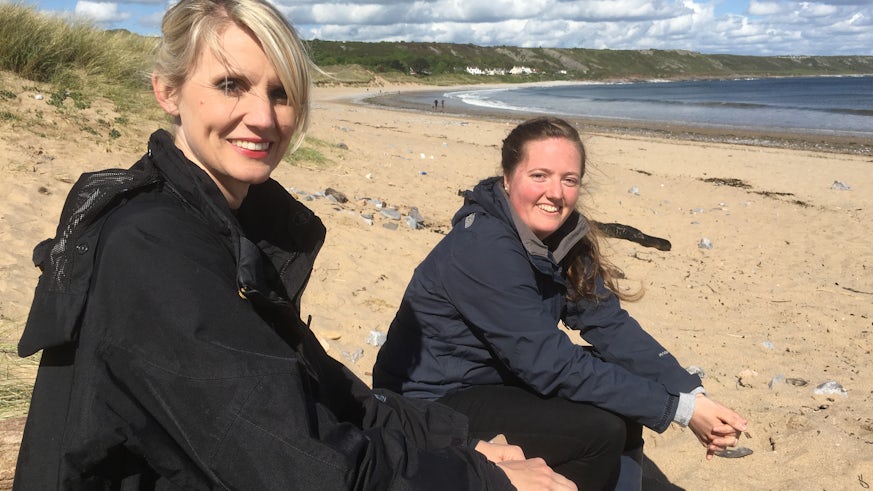Walking in prehistoric footsteps
22 September 2016

A Cardiff University PhD student is shedding light on what the Welsh coastline can tell us about our prehistoric ancestors and the world they inhabited millennia ago in a new BBC2 series.
In Coast: The Great Guide, archaeologist Rhiannon Philp showed presenter Tessa Dunlop how careful study of the coastline – and a simple stroll at low tide – can reveal ancient footprints and traces of prehistoric landscapes.
Close to where she discovered prehistoric footprints, the PhD student described how her research is revealing not only evidence of past coastal communities but also the impact of prehistoric sea level change.
“When our ancestors left their footprints millennia ago they were walking in freshwater marshland” explains Rhiannon. “By focusing on different sediments of beaches such as Port Eynon we can establish not just vegetation and habitat through analysis of pollen samples, but also indicators of climate change.”
In the next research step, carbon-dating will be used on a range of samples to more closely fix a date to this fascinating trace of our ancient ancestors and the world they inhabited. Current estimates indicate a point between the Neolithic and Bronze ages (approximately 4,000BC – 2,000 BC).
The research has evolved with the support of Cardiff’s Reader in Bioarchaeology Dr Jacqui Mulville, leading to a spin-off University-sponsored engagement project in collaboration with Tidal Lagoon Power Ltd.
“It’s so rewarding when your research can reach direct into the classroom. I’m very proud that Footprints in Time is raising awareness of climate change past and present among younger generations in the Cardiff region.”
The southern Wales episode of Coast: The Great Guide appears on BBC2 on 28 September at 8pm.
